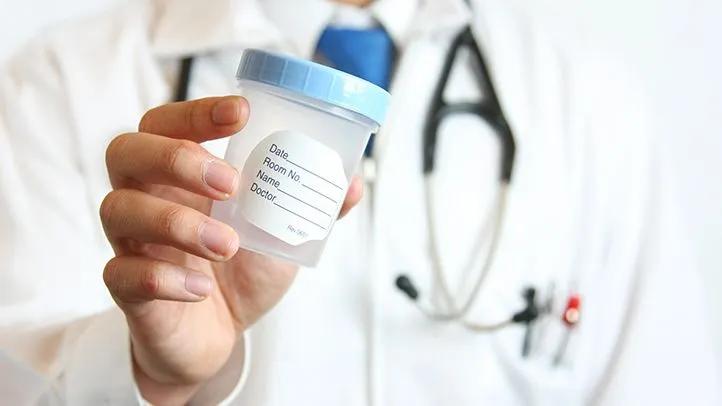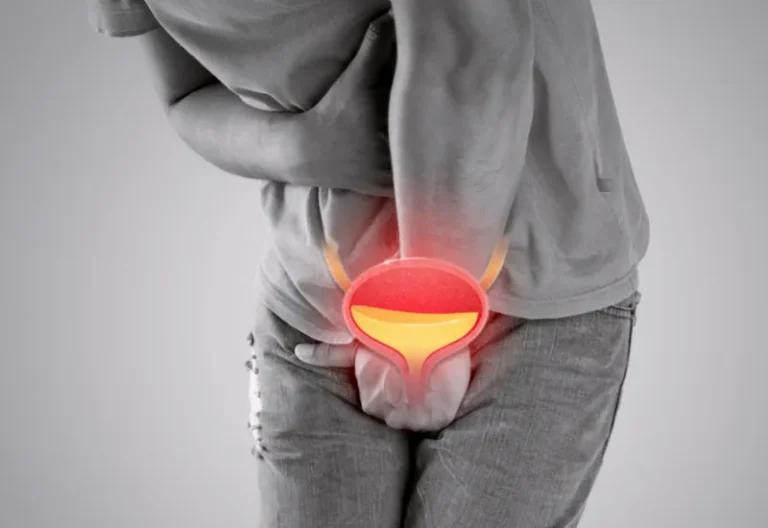
Urinary tract infections (UTIs), also known as bladder infections are common, especially among women, with more than half experiencing at least one UTI in their lifetime. These infections can attack the urinary system, causing UTI symptoms such as pain, burning and frequent urination. However, UTIs can also interfere with other health-related procedures or tests, such as pregnancy testing.
In this article, we’ll delve into the details of UTIs and pregnancy tests, to see whether these infections can affect the results of a pregnancy test.
Understanding Urinary Tract Infections (UTIs)
A urinary tract infection (UTI) is a bacterial infection that can occur anywhere along the urinary tract, including the kidneys, ureters, bladder, and urethra. These infections are 30 times more common in women compared to men, because women have a shorter urethra that allows bacteria to reach the bladder more easily.
The main causes of UTIs include the introduction of bacteria, such as E. coli, into the urinary tract through sexual activity, the use of certain birth control methods, and poor hygiene. Additionally, pregnancy, menopause, and underlying medical conditions such as diabetes can increase a woman’s risk of these infections.
Symptoms of a UTI typically include a burning sensation during urination, a constant urge to urinate, and cloudy, foul-smelling, or bloody urine. In more severe cases, individuals may also experience fever, chills, and back pain. Early diagnosis and antibiotic treatment are vital to prevent the infection from spreading to the kidneys and causing more serious complications.
The potential impact of UTIs on pregnancy tests
UTIs can potentially influence the accuracy of pregnancy test results. This is because both UTIs and pregnancy can trigger changes in the woman’s urine, which is the primary biological sample used in most pregnancy tests.
HCG and pregnancy tests
Hormone levels change when you are pregnant and the best time to test for pregnancy is at least a week or two after your missed period. Pregnancy tests work by detecting human chorionic gonadotropin (hCG), produced by the placenta during pregnancy. The concentration of this hormone increases in the bloodstream and urine as the pregnancy progresses. At-home pregnancy tests that are available over the counter or tests taken in a healthcare setting, such as a doctor’s office, are designed to identify and measure the levels of hCG in the urine sample. The first-morning urine sample is recommended when hCG is at its highest.
The impact of UTIs on hCG levels
UTIs can interfere with the accuracy of a pregnancy test by affecting the levels of hCG in the urine. This can happen for a few reasons:
- Dilution of hCG: During a UTI, the bladder may not fully empty, causing a buildup of urine, resulting in a more diluted urine sample, which may contain lower concentrations of hCG. This can cause a false-negative pregnancy test result, where the test does not detect hCG and incorrectly indicates the woman is not pregnant
- Presence of other substances: UTIs can cause other substances, such as blood, proteins, or bacteria, to be present in the urine. These can interfere with the accuracy of the pregnancy test
- Timing of the test: If a woman takes a pregnancy test during an active UTI, the test may be more likely to produce a false-negative result. However, the results are less likely to be affected if the pregnancy test is taken after the UTI has been treated
In many cases, a UTI may not interfere with the accuracy of the test. However, the potential for a false positive pregnancy test result does exist, especially if they are experiencing symptoms of a UTI at the time of taking a pregnancy test.
Navigating UTIs and pregnancy tests
Seeking medical advice
If a woman is experiencing symptoms of a UTI, it’s crucial to seek medical advice as soon as possible. A healthcare provider can perform a urine test to confirm the presence of a UTI and provide treatment, typically with a course of antibiotics. It’s important to complete the full course of antibiotics, as this can help ensure that the infection is fully resolved.
Once the UTI has been treated, it’s generally recommended to wait a few days before using a pregnancy test, to allow the urine to return to normal, minimising the risk of interference from the UTI.
Retesting and confirmation
If a woman takes a pregnancy test during or shortly after a UTI and receives a negative result, it’s important not to assume that the result is accurate. It’s recommended to retake the test after the UTI has been resolved or to seek a confirmatory test from a healthcare provider.
Healthcare providers can perform more sensitive and accurate tests, such as a blood test or a transvaginal ultrasound, to confirm the pregnancy. These tests are less likely to be affected by a UTI, and provide a more reliable result.
Communication with healthcare providers
Women should communicate openly with their healthcare providers about any concerns or questions they have regarding the relationship between UTIs and pregnancy tests. This can help ensure the appropriate steps are taken to obtain an accurate and reliable test result.
Prevention
Women need to take proactive steps to prevent and manage recurrent UTIs. This can involve:
Lifestyle changes
- Maintaining good hygiene practices, such as wiping from front to back after using the bathroom
- Staying hydrated by drinking plenty of fluids, such as water
- Avoid wearing tight-fitting clothing or synthetic underwear, which can trap moisture and promote bacterial growth
- Urinate before and after sexual activity to flush out any bacteria that may have been introduced
Dietary changes
- Incorporating cranberry juice or supplements, which may help stop bacteria from sticking to the urinary tract
- Limiting the consumption of foods and drinks that can irritate the bladder, such as caffeine, alcohol, and spicy or acidic foods
Medical treatment
- Discuss prophylactic antibiotic treatment with a healthcare provider, particularly for women who get frequent UTIs
- Explore the use of topical oestrogen in postmenopausal women, which can help restore vaginal flora and reduce the risk of UTIs
- Address any underlying health conditions, such as diabetes
By being proactive towards the prevention and management of UTIs, women can improve their urinary tract health and minimise the potential impact on pregnancy test results.
Conclusion
The relationship between UTIs and pregnancy tests is complex, with the potential for interference and inaccurate results. While the effects of UTIs on pregnancy tests is not always true, women do need to be aware of the possibility, and take the necessary steps to ensure the reliability of their test results. You should always confirm the results of a pregnancy test with a healthcare professional and talk openly about your health to minimise the risk of interference with pregnancy tests.
Sources
- Urinary Tract Infection With Gram-Positive Bacteria Does Not Cause False-Positive Results with the Urine-Based Human Chorionic Gonadotropic Point-of-Care Assay – PubMed
- Urinary tract infections (UTIs) – NHS
- Common Questions About Recurrent Urinary Tract Infections in Women – AAFP
- Urinary tract infections – Office on Women’s Health
Medical Disclaimer
NowPatient has taken all reasonable steps to ensure that all material is factually accurate, complete, and current. However, the knowledge and experience of a qualified healthcare professional should always be sought after instead of using the information on this page. Before taking any drug, you should always speak to your doctor or another qualified healthcare provider.
The information provided here about medications is subject to change and is not meant to include all uses, precautions, warnings, directions, drug interactions, allergic reactions, or negative effects. The absence of warnings or other information for a particular medication does not imply that the medication or medication combination is appropriate for all patients or for all possible purposes.









